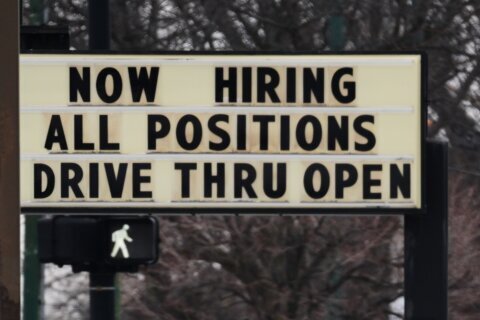With tax filing season in the rearview mirror, most Americans have received their refunds — or will soon. But what should you do with the money once it arrives?
Whenever you get a windfall, it can be tempting to splurge on something fun. While it can be great to treat yourself with extra cash, a tax refund is also a great opportunity to shore up your emergency savings, make investments or use it to increase your financial security.
[Read: When You Should (and Shouldn’t) Worry if Your Tax Refund Is Delayed.]
What to do with your tax refund
If you do end up getting a refund, how should you spend it? Experts agree prioritizing savings and debt payments is the best strategy.
“The best thing to do with extra money is almost always to save it, invest it or use it to pay down debts. However, this isn’t always an easy option for everyone. If your tax refund is the only big windfall during the year, you might really want to spend it, and if so, you need to be strategic. Try to strike a balance between doing something fun and something responsible,” says Charlie Corsello Jr., enrolled agent, president and founder of TaxCure.
While it can be great to treat yourself to something fun, try and prioritize these options first:
1. Build your emergency fund
An emergency fund is a critical tool for maintaining financial security in case of unexpected expenses or a layoff. If you aren’t able to put away three to six months of expenses in your savings with your normal paychecks, you can use your tax refund to boost that number.
“Top up that emergency fund. The cost of many emergency services has increased more than the high inflation rate you see in the news. Between high inflation and recent company layoffs, it’s important to carry a good cushion of readily accessible cash if anything comes up,” Delane says.
[READ: How Much Should You Save In an Emergency Fund?]
2. Pay down high-interest debt
If you’re carrying a balance on a credit card or other form of high-interest debt, odds are those interest charges are racking up over time. Paying down that balance will save you money in the long run and free up your budget for fun purchases.
3. Invest extra cash
You can make a large sum of money work for you by investing it.
“If your emergency fund and other short-term obligations have been met, it’s a good idea to invest for the future. This is historically a good time to deploy excess cash into the markets,” Delane says.
The same goes for retirement savings: Adding extra cash to the pool means it has a chance to grow over time and pay off more in the long term.
4. Donate to charity
According to Alyssa Rausch, senior tax manager, private client services at Eisner Advisory Group, spending your tax refund wisely can benefit you the next time you file your taxes.
“If liquidity is not an issue, then look into using your refund to purchase state municipal bonds, which generate tax-exempt interest; contribute to a pretax 529 plan, which grows tax free; or donate to a charity meaningful to you to obtain a tax deduction,” Rausch says.
5. Tackle maintenance costs you’ve been postponing
Do you have a car issue you’ve been postponing due to cost? A home appliance that needs to be repaired? Take advantage of extra cash from a refund to address these types of issues.
“Think about any big expenses that are likely to come up in the next 12 months and get in front of them. For instance, if your tires are balding or your dryer is making noises, use your tax refund to upgrade. Then you get the joy of spending some money and you also avoid a future financial crisis,” Corsello says.
How much is the average tax refund?
According to IRS data from April 2023, the average refund amount was $2,753 in 2023, down from $3,012 the previous year.
“While many factors affect refunds, one of the main reasons they’re lower this year is because increased child tax credits in 2021 bumped up the refunds filers received in 2022,” Corsello says.
Still, your tax refund might be higher or lower than this amount — or you could owe the government money.
“A typical person aims for their tax refund to be a ‘net zero,'” Tony Delane, certified financial planner and associate wealth advisor at Halbert Hargrove, says.
“When tax time comes, owing money could stress monthly cash flow and force one to sell assets at what may be a bad time. Additionally, they may be subject to underpayment penalties. On the flip side, while receiving a tax refund check feels nice, that money could have been used elsewhere throughout the year, such as earning interest in a high-yield online savings account,” he adds.
What to do if your tax refund is higher or lower than expected
If you expected a particular tax refund throughout the year and are getting more or less than expected, make sure to address your withholdings or speak to a financial advisor to make sure you’re using the best strategy.
“If you only have W-2 income, there’s not a lot you can do to increase your refund,” Corsello says. “However, you need to make sure you’re claiming all the credits and deductions possible.”
“If you want a larger refund next year, consider filling out a new W-4 and asking your employer to withhold more income tax from your paycheck,” he adds.
Remember, though, that a larger tax refund is not always a good thing.
“If you are receiving large refunds consistently each year, speak to your employer and tax advisor about adjusting your tax withholdings and tax estimates, respectively. Small refunds indicate you are paying just the right amount of taxes — not too much to provide an interest-free loan to the government but not too little to result in the assessment of interest and penalties,” Rausch says.
[Related: How to Adjust Your Tax Withholding]
Don’t let your refund sit in your checking account
No matter how you spend your tax refund, putting it to good use rather than letting it sit in your account means you’ll get more out of it.
“Aside from the obvious of immediately spending it on frivolous or impulse purchases, simply keeping the tax refund in your checking account is a mistake. We are in an inflationary environment, and the interest most banks pay simply won’t keep up,” Delane says.
“If you plan to keep the money to supplement an emergency fund or for shorter-term obligations, there are online high-yield savings accounts currently paying well in excess of what most checking accounts will,” he adds.
More from U.S. News
10 Apps to Use Now to Make Taxes Easier Next Year
How to Calculate Your Effective Tax Rate
Major State Tax Changes You Might Have Missed
Best Ways to Spend Your Tax Refund originally appeared on usnews.com







